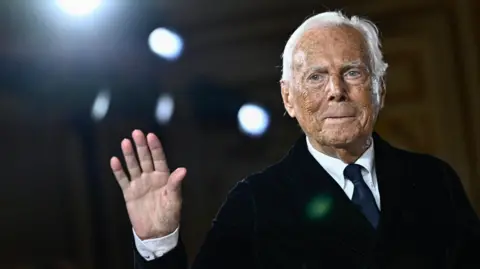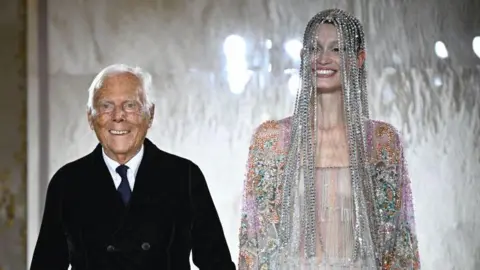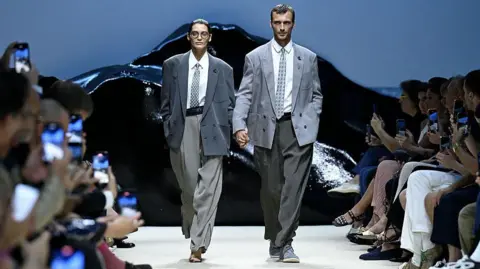Giorgio Armani, architect of modern suiting, dies at 91
The Italian designer who reshaped men’s and women’s fashion and built a global luxury empire worked until his final days, his company said.
Giorgio Armani, the Italian designer credited with transforming the modern suit and building a global fashion and luxury empire, has died at the age of 91, his company announced Thursday.
The Armani Group said in a social media statement that "Il Signor Armani" passed away peacefully, surrounded by loved ones. The company said he remained "indefatigable to the end," working on the firm’s collections and ongoing projects until his final days, and praised his independence "of thought and action" as a hallmark of his career.

Armani was widely regarded as the archetype of Italian style, credited with reimagining both men’s and women’s suits for the latter half of the 20th century. He softened and modernised tailoring, removing rigid structures and introducing a new silhouette that made suits feel less constrictive for men and more empowering for women entering the workplace. Fashion critics and historians have compared his influence to that of Coco Chanel, calling him the first designer since her to effect a lasting change in everyday dress.
The designer founded his label in 1975 and expanded it into a diversified business that includes beauty and fragrance lines, musical and sports partnerships, and luxury hotels. The Armani Group has grown into a multibillion-pound enterprise, with annual revenues reported at more than £2 billion.

Born on July 11, 1934, in Piacenza in northern Italy, Armani came of age during the turmoil of World War II. Accounts of his childhood describe severe wartime privations; he later recalled memories of hunger and a traumatic incident in which an unexploded artillery shell blew up while he and a friend were playing, killing the friend and severely burning him. Those early experiences informed a life and career marked by discipline and quiet determination.
Armani’s aesthetic—understated, elegant and focused on proportion and cut—helped define what became known as Italian tailoring. He was credited with "feminising" the suit for men and making suits acceptable and aspirational for women in business and public life. The look became synonymous with a broader social shift toward relaxed formality and gender-fluid approaches to dress.
Tributes poured in from across the fashion world. Designer Donatella Versace posted a photograph of Armani on Instagram, writing: "The world lost a giant today, he made history and will be remembered forever." Armani’s company said a funeral chamber would be open to the public from Saturday, Sept. 6, to Sunday, Sept. 7, at Milan’s Armani Teatro, followed by a private funeral.

In recent years Armani remained a visible presence at the brand’s shows and events. He attended his final runway show in January 2025, acknowledging the audience as models and collaborators took their bows. The company has said he dedicated himself to the company and to future projects, leaving a broad portfolio of brands, licenses and properties.
Armani’s impact extended beyond clothing to lifestyle and hospitality, shaping a consistent aesthetic across boutiques, perfumes and hotels. Designers, business associates and cultural commentators noted his lasting influence on the way people dress and on the international perception of Italian fashion.
The precise cause of Armani’s death was not disclosed in the company statement. Further details about mourners and the arrangements for the private funeral were not released.
His death closes a chapter in postwar fashion history in which a designer helped to redefine modern elegance and played a central role in expanding fashion into a global cultural and commercial industry.